It’s time for girls to get equal power
When diverse voices are represented, political decisions are fairer for all.
When girls stand up for change, amazing things can happen.
From Malala to Emma Gonzalez to Greta Thunberg, we’ve seen girls and young women catalyse some of the biggest and most effective movements of the past decade.
These girls have been compelled to take a stand as a result of catastrophe and tragedy around them.
This begs a question. Why, across the globe, are girls and young women systematically excluded from decision-making spaces?
From their homes to parliaments, girls are routinely refused opportunities to voice their concerns. All because they are young and female.
However, as the feminist movement grows, global girls are starting to tackle this inequality head-on.
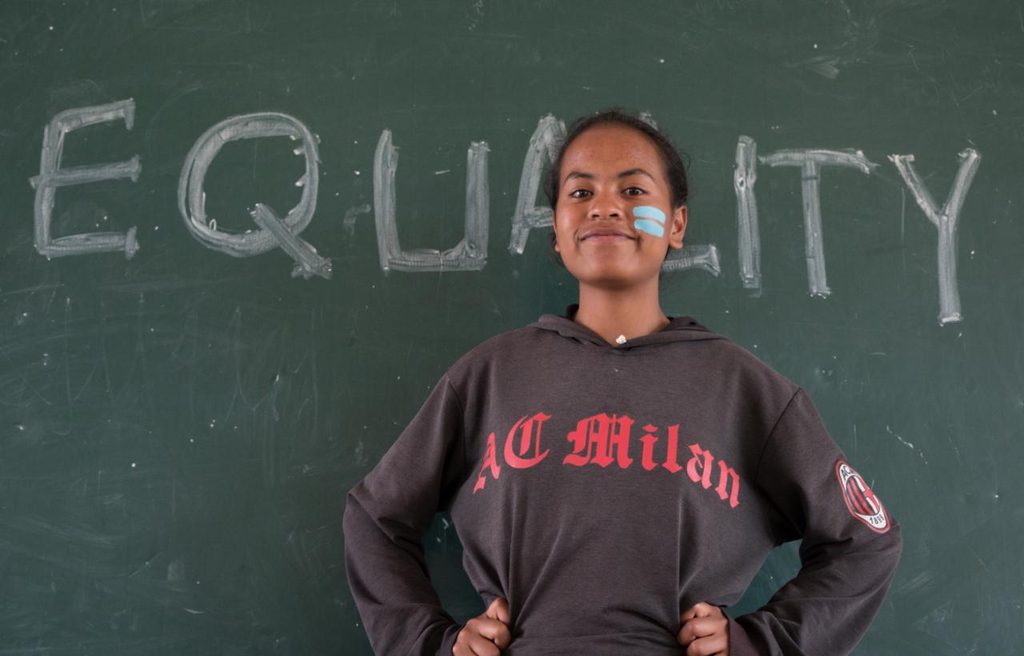
Girls are getting equal
In Timor-Leste, rural girls and women are claiming their power.
They’re practising public speaking, growing in confidence and learning about local and national politics in order to participate meaningfully in political affairs.
Through the Women and Girls’ Participation project funded by Folke Bernadotte Academy, we’re supporting girls like 11-year-old Santina to take the lead.
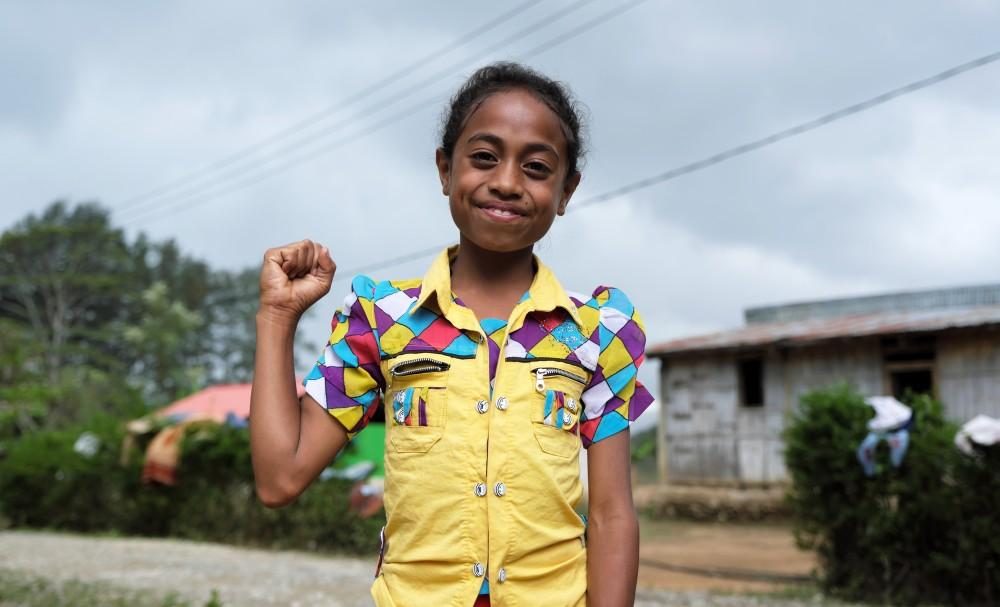
Santina lives in a mountain town in rural Aileu district with her family and has developed some big ambitions – she wants to become prime minister after stepping into this role as part of the #GirlsTakeover on International Day of the Girl last year.
I want my voice to be heard.
Santina, 11.
“When I took over from Prime Minister Taur Matan Ruak I felt important and powerful,” says Santina.
She wants other girls to have a chance at that feeling.
“One of the biggest challenges facing rural girls here is child marriage. A lot of my friends in years 10 to 12 are already getting married.”
“I want my voice to be heard so that in future, we can prevent other girls getting married. So they too have the chance to be Prime Minister if they want to be.”
Girls must be seen and heard
Silviana wants to be an MP in Timor-Leste to tackle rural girls and women’s issues.
Girls and young women’s voices in decision-making are critical to ensuring governments, corporations and communities take their needs into account.
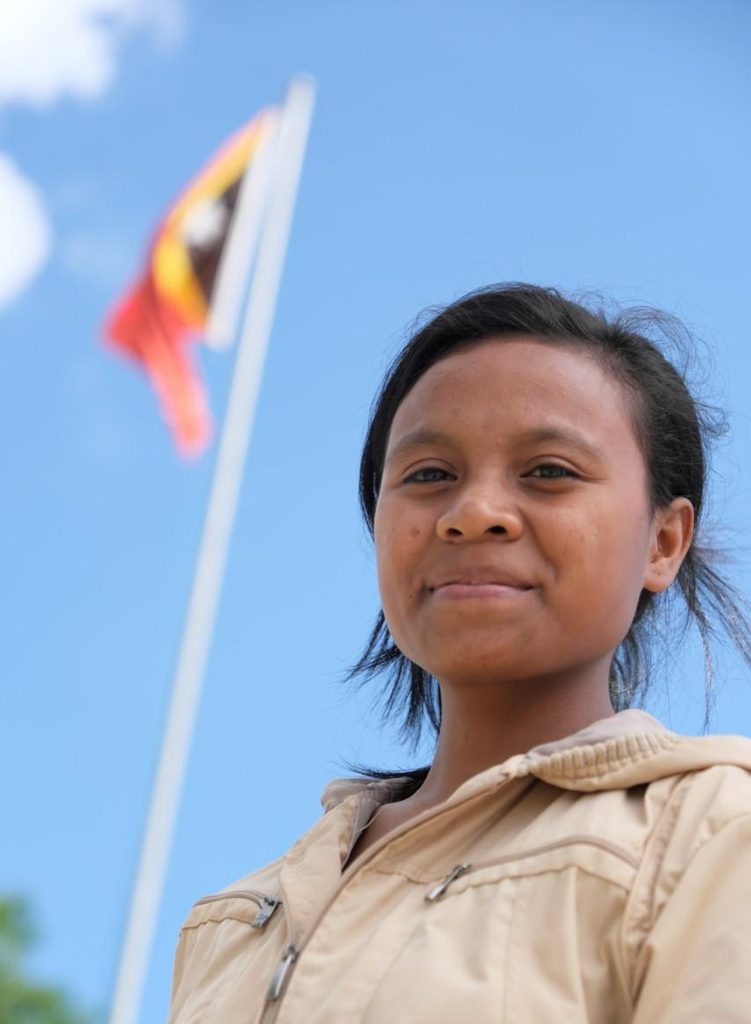
Silviana, 18, wants to be a member of parliament. She has strong opinions on how to make improvements in Timor-Leste.
“For girls to be equal a lot more programmes need to be implemented in rural areas by the government in support of girls. Right now we see a lot of girls dropping out of school because of early pregnancy and marriage.
“Culturally, my parents’ generation hasn’t given women much power, so I guess their voice didn’t really matter then. But now, with more information, girls are gaining confidence in expressing their feelings and thoughts.”
In Timor-Leste, 19% of girls are married before their 18th birthday and nearly a quarter have had a child before age 20.
Among 15-19-year-olds, 50% already have more than one child.
Having children at a young age has significant effects on girls’ education and career options. These numbers can be tackled by investing in girls’ education and sexual and reproductive health advice and services. Girls and women are more likely to push for these solutions when they are empowered to make decisions.
Through the Women and Girls’ Participation project, girls and young women are meeting political leaders, gaining confidence in their public speaking abilities and getting involved with networking and media opportunities.
Girls are gaining confidence in expressing their feelings and thoughts.
Silviana, 18.
“Before being part of the project I wasn’t brave or confident enough to speak publicly,” says 17-year-old Francelina. “But this has boosted my confidence in speaking up and expressing my feelings and my thoughts and concerns to the public. It has helped me a lot.”
Francelina recently came first in a school public speaking competition.
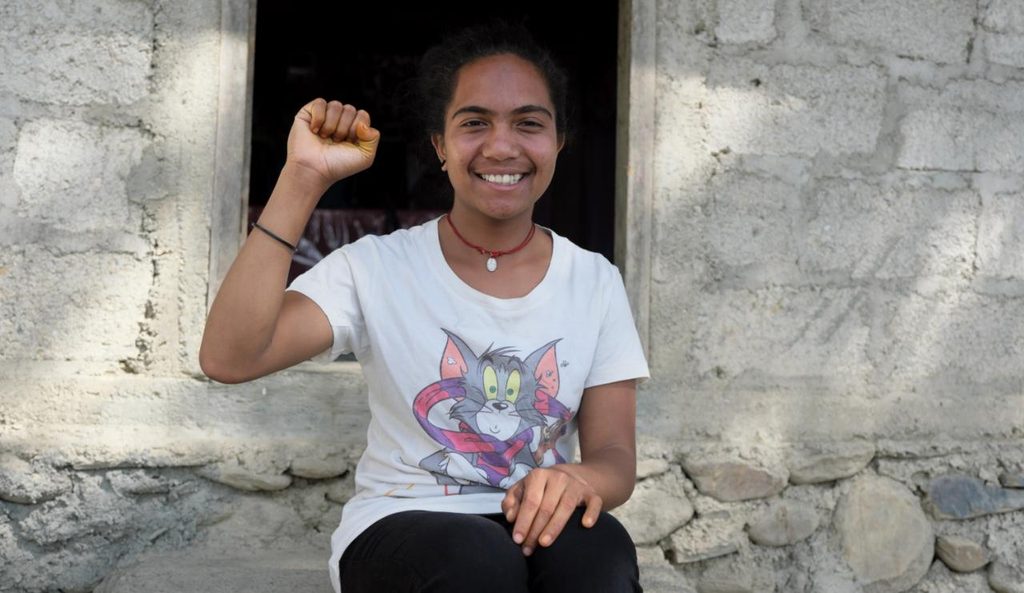
Girls need allies
Allies will be vital for girls to get equal power. Those in leadership positions must open the door for girls and women in the form of training, mentorship opportunities or funding.
Boys and men make important allies. In Timor-Leste, as in all countries, men make up the majority of leadership positions – from MPs to rural village chiefs.
They can also help bring an end to the harmful gender stereotypes and outdated traditions that continue to hold girls and women back by speaking out about discrimination and supporting women’s empowerment.
Thirty-two-year-old Manuel is impressed with the work of Luisa, the chief of his village in Aileu. He’s supportive of women in leadership positions because he can see the benefit to girls whose voices are so frequently silenced.
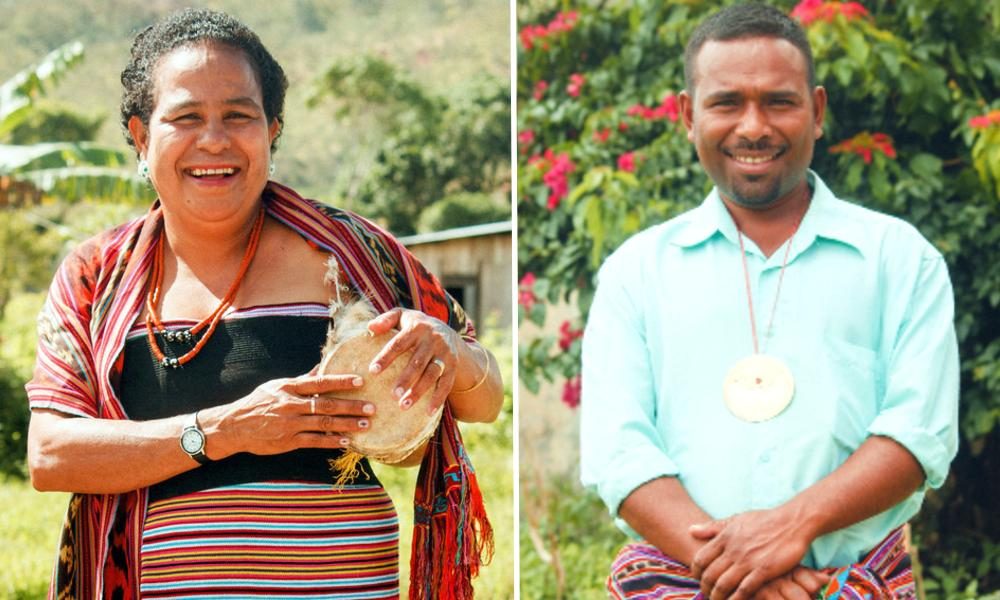
“Luisa is definitely a role model for the girls. And she encourages other women and girls to make their cases. If they face problems, for some it is now easier to go up to our female village chief than it would be to go to a man.
Now more women are coming to our meetings.
Manuel, villager from rural alieu.
“It is a good thing that we now have a female village chief. Now more women are coming to our meetings. A few years ago the participation of men was very high and that of women was very low, but that is changing.”
When more female and diverse voices are heard, political choices and decisions are fairer and better for all.
Empowered girls and women inform and inspire each other to get involved in political and democratic processes.
“Having women chiefs is inspiring to girls and shows them they have different opportunities than they had previously thought. Before the project began there was only one female village chief. Now we have 21,” says Programme Coordinator Emília Falcão.
You can support girls claiming power
When Girls Get Equal power they have the ability to make a difference in the world, to influence the decisions that affect them and be taken seriously. They can contribute to halting rising regressive forces across the globe.
But they can’t do it alone. Girls need allies.
You can support the girls and young women standing up for change and claiming their power today.
Sign up to our newsletter to be kept up to date with details of the Girls Get Equal campaign.